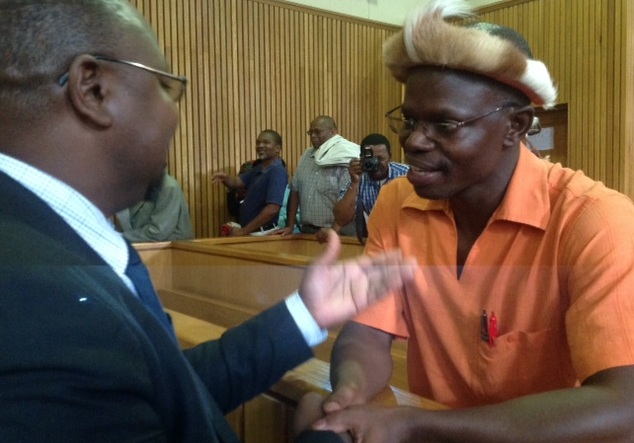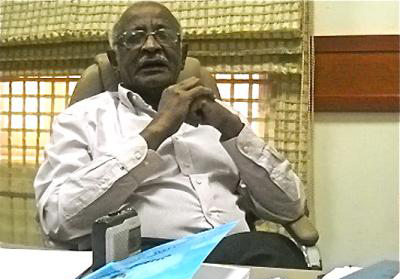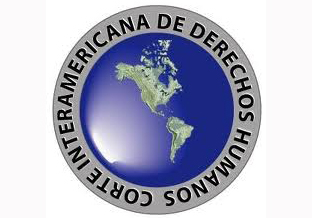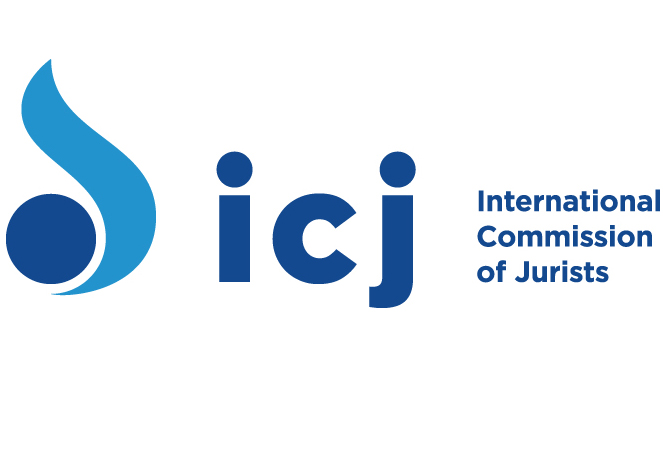
Mar 16, 2015 | Advocacy, Legal submissions
The ICJ has made further submissions to the UN Working Group on Arbitrary Detention on its elaboration of Draft Principles and Guidelines on habeas corpus.
In February 2015, the Working Group released for public input a revised set of ‘Draft Principles and Guidelines on remedies and procedures on the right of anyone deprived of his or her liberty by arrest or detention to bring proceedings before a court without delay, in order that the court may decide without delay on the lawfulness of his or her detention and order his or her release if the detention is not lawful’.
The ICJ’s submission welcomes the elaboration by the Working Group of the revised Draft Principles and Guidelines as a means of assisting States to enhance, in law and in practice, respect for the right to habeas corpus and especially welcomes certain aspects of the document. It suggests means of further improving the revised Draft Principles and Guidelines, concerning:
- The temporary nature of any derogating measures impacting upon the application of some procedural elements of the right to habeas corpus;
- The competence of courts to make orders for immediate release;
- The implementation of court orders for release;
- The public nature of judicial decisions following adjudication of habeas corpus petitions;
- Guarantees applicable to specialized tribunals;
- The right to legal aid and legal assistance;
- Confirming that the procedure must be available at all times and to all detained persons, including prisoners or war, as a remedy to protect non-derogable rights such as the prohibition against torture and ill-treatment; and
- The inadmissibility of evidence obtained by torture.
The Working Group will present its final draft to the Human Rights Council’s 30th regular session in September 2015.
Attachments
ICJ-WGAD-RevisedDraftPrinciplesAndGuidelines-3rdLegalSubmission-2015-EN (The ICJ’s latest submission in PDF)
WGAD-Habeas-RevisedDraftPrinciplesAndGuidelines-2015-EN (PDF)
Additional links for reference
The ICJ’s first written submissions to the Working Group in November 2013
The ICJ’s second written submissions to the Working Group in April 2014
Panel presentations at the September 2014 Global Consultation by ICJ staff Matt Pollard and Alex Conte

Feb 17, 2015 | News
Alleging a range of human rights violations by Swaziland in the cases of Thulani Maseko and Bheki Makhubu, leading legal advocates today filed a petition with the UN Working Group on Arbitrary Detention (UNWGAD) in Geneva.
The American Bar Association’s Center for Human Rights, the global law firm Hogan Lovells and the ICJ jointly produced a petition calling for the UNWGAD to issue an opinion regarding the lawfulness of the continued incarceration of Thulani Maseko, an internationally recognized human rights lawyer and feature writer for The Nation magazine.
“The consequences of this arbitrary action against Thulani Maseko have not only violated his rights and exacted a heavy personal toll, but have also highlighted the rule of law deficit in Swaziland,” said Wilder Tayler, ICJ’s Secretary General. “Thulani Maseko has been denied his right to express an opinion on public affairs and the administration of justice, guaranteed under international law and affirmed in the UN Basic principles on the Role of lawyers.”
Thulani Maseko and journalist Bheki Makhubu were charged with two counts of contempt of court emanating from articles published in February and March 2014, in which they questioned circumstances surrounding the arrest of a government vehicle inspector.
They were sentenced to two years of imprisonment, without the alternative option of a fine at the end of a trial largely condemned by leading international rights groups as unfair and not complying with international standards on the right to a fair trial.
Some of the fair trial guarantees that have been breached, according to the legal petition filed with the UNGWAD, include the right to be tried by an independent and impartial tribunal; right to a public hearing; right to a legal counsel; right to the presumption of innocence; right to bail; and right to protection of the law.
“The use of contempt of court proceedings to suppress the right to freedom of expression is a violation of international human rights law,” said Marc Gottridge, partner at Hogan Lovells. “The right to freedom of expression is guaranteed in the Swazi constitution and international law, including treaties to which Swaziland is a party.”
“The general failings of the Swazi judiciary with respect to independence and impartiality makes it reasonable to conclude that there cannot be an effective domestic remedy for Thulani Maseko,” he added.
Contact:
Arnold Tsunga, Director, ICJ Africa Regional Programme, t +27 716 405 926 or +41 762 399 032, e arnold.tsunga(a)icj.org,
Matt Pollard, Senior Legal Adviser, ICJ, Centre for Independence of Judges and lawyers, t +41 22 979 38 12, e matt.pollard(a)icj.org
Marc Gottridge, Partner Hogan Lovells, t +1 212 918 3000, e marc.gottridge(a)hoganlovells.com
Ginna Anderson, Senior Counsel, Center for Human Rights, American Bar Association, t +1 202 442 3438, e ginna.anderson(a)americanbar.org
Background:
Thulani Maseko was arrested on 17th March 2014 following a warrant of arrest that was issued by the Chief Justice Michael Ramodibedi on his own motion.
This was after he had written an article titled “Where the Law Has No Place” criticising the courts for the way that a fellow Swazi citizen Mr Gwebu Bhantshana had been arrested and detained and the wider implications of that case on the rule of law in Swaziland.
Save for 3 days in April 2014 when he was released following Judge Mumcy Dlamini’s judgment declaring his arrest and detention wrongful and illegal, Thulani has been in custody since his initial arrest. Mr. Maseko was initially held at Sidwashini Correctional facility before he was taken to Big Bend Correctional facility, where he is currently lodged.
Further background material can be found here:
http://www.americanbar.org/news/abanews/aba-news-archives/2014/04/statement_of_jamesr.html
https://www.icj.org/swaziland-icj-condemns-the-harsh-prison-term-imposed-on-thulani-maseko-and-bheki-makhubu/
https://www.icj.org/swaziland-icj-condemns-the-conviction-of-celebrated-human-rights-lawyer-and-prominent-journalist-on-charges-of-contempt-of-court/
https://www.icj.org/swaziland-icj-concerned-at-detention-of-human-rights-lawyer-and-journalist/
Download the petition:
Swaziland-Maseko WGAD Petition-Advocacy-2015-Eng (full text in PDF)
The lawyers at Hogan Lovells US LLP who worked on this petition are Marc Gottridge, Dianne Milner, Allison Holt and Hans H. Hertell.

Dec 19, 2014 | News
Prominent human rights lawyer Dr Amin Mekki Medani, and lawyer and political opposition leader Farouk Abu Issa, remain in detention at an unknown location. The two men were arbitrarily arrested by the Sudanese authorities in early December.

Nov 15, 2014 | News
La Comisión Internacional de Juristas, a través de su representante para Suramérica, Federico Andreu-Guzmán, intervino como perito en el procedimiento interamericano, a solicitud de los representantes de las víctimas.

Aug 12, 2014 | Events
Matt Pollard and Alex Conte, of the ICJ’s International Law and Protection Programmes, will give presentations during the Global Consultation on the Right to Challenge the Lawfulness of Detention, to be held in Geneva on 1-2 September 2014.
The UN Working Group on Arbitrary Detention, in cooperation with the Office of the UN High Commissioner for Human Rights, will convene the Consultation. The aim of the two-day meeting is to seek input on the development by the Working Group of draft basic principles and guidelines on remedies and procedures on the right of anyone deprived of his or her liberty, by arrest or detention, to bring proceedings before court, in order that the court may decide without delay on the lawfulness of his or her detention and order his or her release if the detention is not lawful.
ICJ experts, Matt Pollard and Alex Conte, will be members of two panel discussions during the Global Consultation, respectively on the framework, scope and content of the right to court review of detention and on exercise of that right in situations of armed conflict, state of emergency or for counter-terrorism purposes.
The ICJ has already made two written submissions to the Working Group on Arbitrary Detention on the subject, in November 2013 and April 2014.
Go to the OHCHR webpage on the Global Consultation
See the ICJ’s written submissions to the Working Group on Arbitrary Detention









